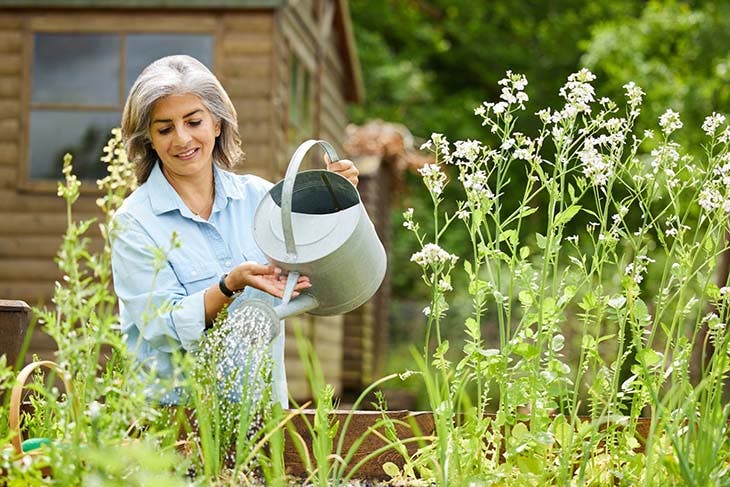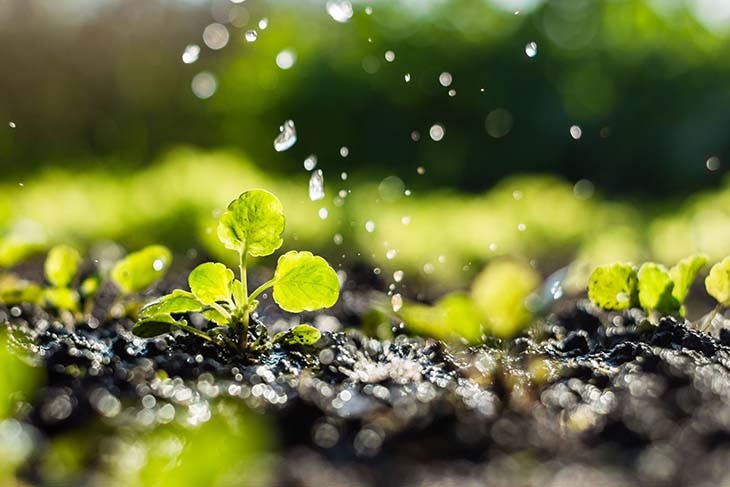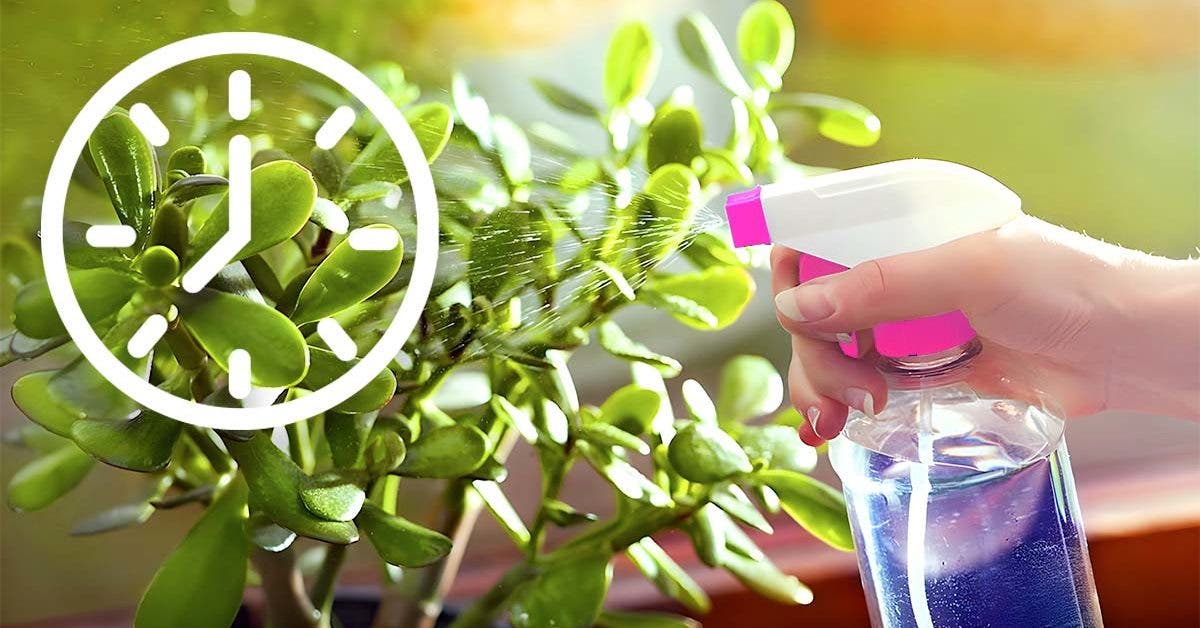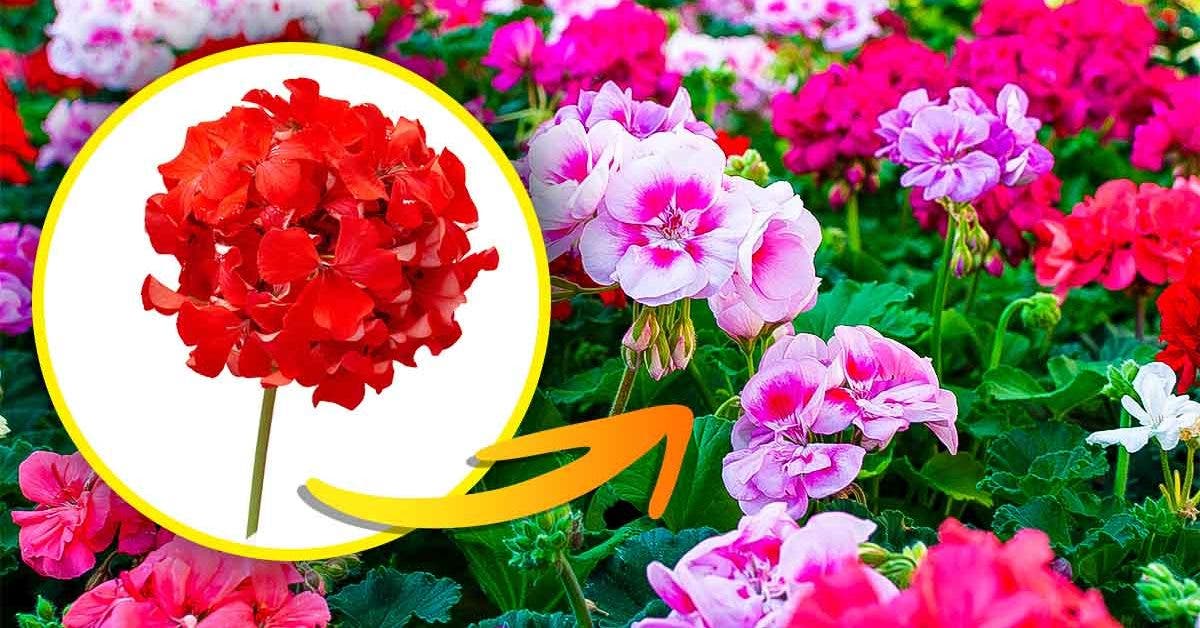Here's the best time to water the plants (and it's not in the morning)
To obtain vigorous and healthy plants, it is important to water them regularly, according to their needs and to avoid excessive watering which could harm them. However, to take care of plants, it is not enough to know the water supply they need, but they must also be watered at the right time of day. Indeed, this makes it possible to obtain vigorous and disease-resistant plants.
Water is a vital element for plants. It transports nutrients from the soil to the plant cells. Successful plant watering depends on how much water you give the plants, but also on when you choose to water them.
When to water the plants of the garden ?

Watering the plants in the garden – Source: spm
The question What comes up most often when talking about watering plants is whether to water plants in the morning or preferably in the evening. You should know that the ideal time for watering plants depends on the season. Indeed, during during periods of high heat, that is to say in summer, it is advisable to water the plants in the evening. This limits water loss by evaporation and keeps plants and soil hydrated. If you water your plants in the morning, during the hottest hours, the water could evaporate before being properly absorbed by the plants. Thus, neither the ground nor the plants could cool down. When it is hot, think also to mulch the soil, in order to limit the evaporation of water during the day. By keeping the soil moist, you can space out waterings and thus save water. A good mulch also allows to limit the growth of weeds which compete with plants and harm their growth healthy.
On the other hand, when the temperatures are low and the nights are cooler, it is not recommended to water the plants in the evening. This would increase the freshness of the soil and could even harm the growth of plants which are not very hardy, which do not support not cold and frost. In addition to this, the water could freeze if the temperatures are very low. In this case, it is best to water the plants in the morning.

Hydrated plants – Source: spm
To water your plants well, especially when it is hot, it is advisable to water them abundantly, but less often. Indeed, when you water your plants daily, but superficially, the system root of your plants begins to develop superficially and not in depth. To avoid this, it is advised to water the plants in two passes. This will allow you to moisten the soil first, in order to facilitate the penetration of water into the soil during the second watering.
When you water your plants, avoid strong jets of water, as they could compact the soil. That said, it is preferable to water at the neck, that is to say without using the head of the watering can. Also, try to water at the foot of each plant, because it is at this level that the water is directly used for feed the plants. By watering the plants in this way, you save water, and also avoid the appearance of slugs and weeds. This technique also allows you to water the plants, without wetting the foliage, in order to avoid cryptogamic diseases. Indeed, humidity promotes the appearance of fungi, especially in roses, potatoes and tomatoes.
You should also know that the amount of he water a plant needs varies according to the different phases through which it passes. Indeed, the needs of a plant during the period of vegetative growth or flowering are different from its needs when it is in a period of vegetative rest. When a plant goes dormant, usually in winter, its water needs decrease, because its growth slows down. In this case, it is necessary to reduce the frequency of watering of the plants.
That said, before deciding if it is advisable to water the plants in your garden in the morning or in the evening, it is important to know the night and daytime temperatures, to allow your plants to stay hydrated, without fearing the cold or frost.
Read also How to prepare vitamin water for your plants? They’ll grow like never before




